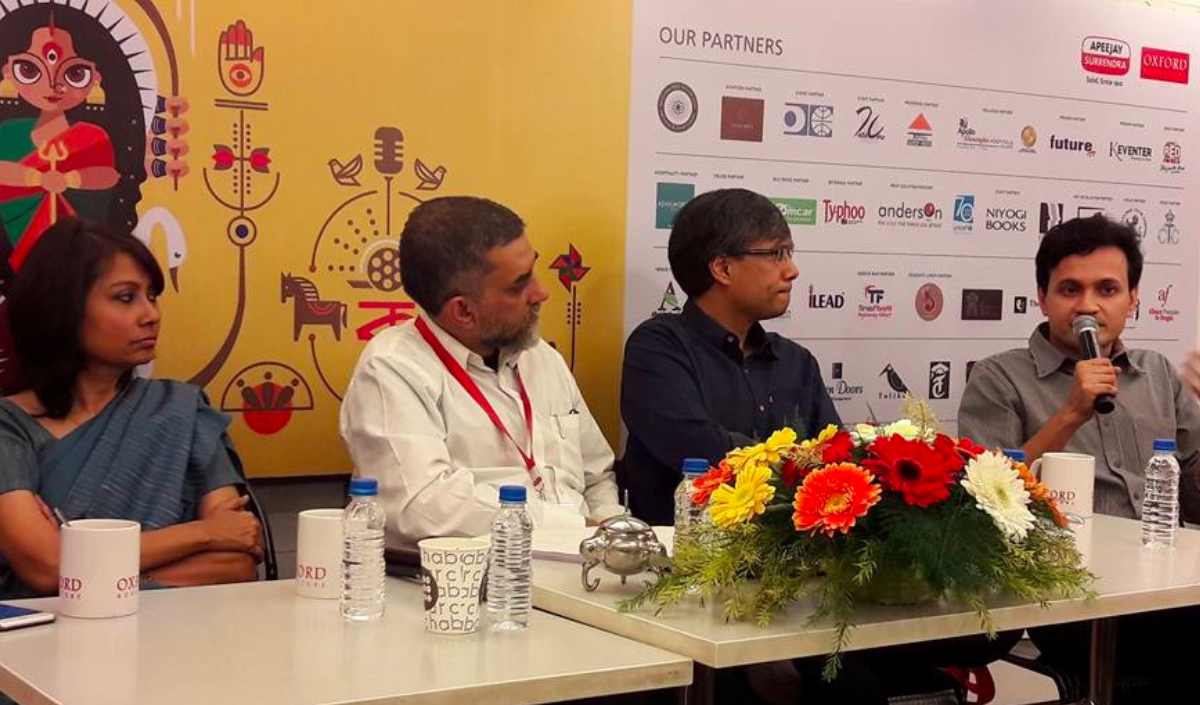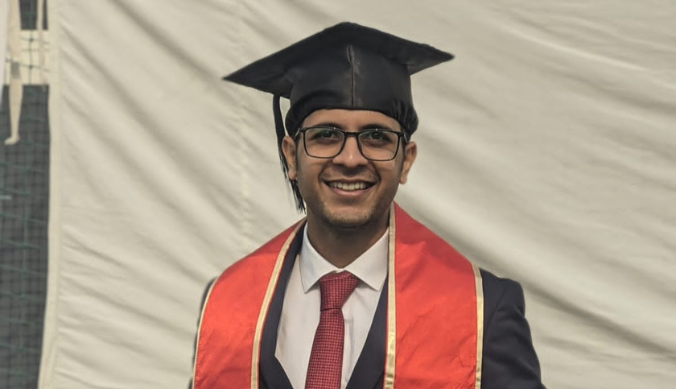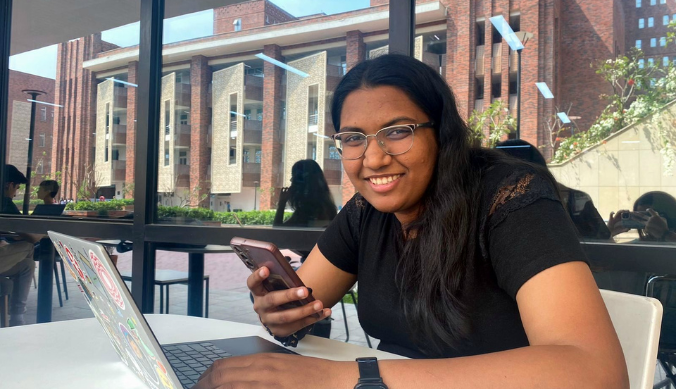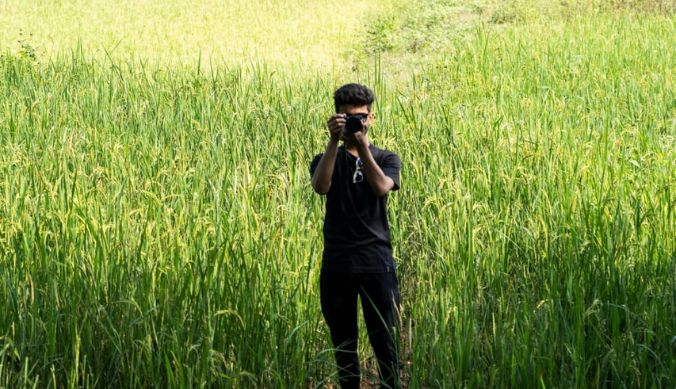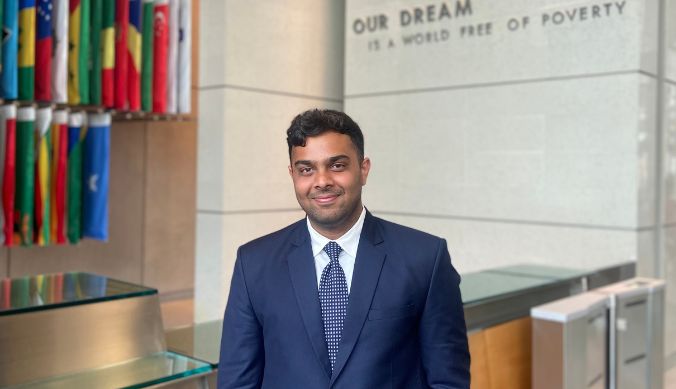Ashoka faculty speak at Literature Festivals across the country
Here is a sneak peek into what they spoke about, and a few comments from them on their sessions.

Office of PR & Communications
1 January, 2017 | 10 Mins readThis year, literature festivals across the country, saw participation from Ashoka faculty speaking on diverse fields such as history, politics and religion. Here is a sneak peek into what they spoke about, and a few comments from them on their sessions.
We asked Vinay Sitapati, Professor of Political Science and Saikat Majumdar, Professor of English at Ashoka University what their sessions were about and what they felt about the festival(s). Here are a few lines in their words:
Vinay Sitapati at Jaipur Literature Festival
“I have attended JLF before, as a visitor; this time I was a speaker. It was amazing to be part of something that has around 400 speakers, and 4 lakh visitors. It really is something to see so many people in india who want to talk about books, especially lots of kids and college students. For the kind of crowds you see, it’s also very well organised. Jaipur Literature Festival is the kumb mela of books.
I spoke about my book on Narasimha Rao, along with Sanjaya Baru and Surjit Bhalla. Both of them are respected economists, so I tried to bring a political angle to the changes in the 1990s. There was a huge audience; I like to think that, it’s because Indians are now starting to contemplate more about the early 1990s when their lives began to change. We know from data that the lives of most families – across income percentiles – has improved relative to what they were before 1991. My argument is that this transition was fundamentally political, and would not have happened without Rao. The audience were in some sense, children of Rao – the beneficiaries of liberalisation and the other changes that Rao brought about. So it was nice to hear so many questions and views from the crowd.”
Saikat Majumdar at Bangalore Lit Fest and Kolkata Fest
“I enjoyed several fascinating conversations in the recent literary festivals. One was a session titled The Vernacular Life of English at the Bangalore Literature Festival in December last year– a dialogue between me and the Kannada writer Vivek Shanbhag. We spoke about how Vivek’s novella Ghachar Ghochar, beautifully translated into English by Sreenath Perur, works as a new work in English, and in comparison, my novel, The Firebird, though written originally in English, embodies the worldview of Bengali literature and theatre.
Another memorable panel on literature was at the Apeejay Literary Festival in Kolkata – with me, the writers Amit Chaudhuri and Raj Kamal Jha, and the scholar Rosinka Chaudhuri. It was titled On Literary Activism, to mark the publication of the collection by that name by Oxford University Press. The subject was the place of the literary in the public sphere, which seems rather embattled and minoritized these days.
I also moderated a session at the Bangalore Litfest, about culture wars between the Left and Right, with Aakar Patel, Mini Menon, Manu Pillai, and Sumant Batra – it was a fascinating conversation to have in the last weeks of 2016, which has been such a livewire year for these issues.
Several young students, including two people who are YIF-aspirants at Ashoka, followed up with great questions about writing.
People in the audience always have questions about the writing life – this was a particular experience at my session at the Jaipur Lit Fest last year. Later, on blogs, social media, and YouTube comments, I always come across interesting misreadings of things we discuss; but the misreadings, too, do us honor, as they sometimes represent things in a new way, and always, show a real engagement with our writings and discussions.”
Alex Watson, Professor of Indian Philosophy and Jonathan Gil Harris, Dean of Academic Affairs at Ashoka University spoke on unconventional topics at the Literary fests. Here is a recap of what these their talks were about.
Alex Watson at Jaipur Literature Festival
In a nation like India, the idea of Atheism is considered to be “Western” and “Contemporary”. In this years session of the Jaipur Literature Festival, Alex Watson debunked the very idea that Indian Philosophy had not mentioned atheism. He spoke about the Charvaka / Lokayata School that denied the existence of a deity and believed in the materialistic nature of human life. This school, he said, dates back to the 6th century and is one of the most orthodox schools in Indian philosophy. As the session progressed, the other panelists, Tim Whitmarsh and A.N.D Haksar, along with Professor Watson, discussed the very nature of atheism that existed in the ancient world be it India, Greece or Rome. As the questions flew in from the crowd, Professor Watson discusses the very core of theism, and its relationship with atheism and the proponents of what makes up modern faith or belief in God. In a nutshell, the session delved into the fundamental idea of atheism and for the audience, it was the very unfolding of an ancient practice which is thought to be a modern-day rebellion movement.
“I suppose there are two different senses of atheism. The most thoroughgoing atheism is that of the Charvakas where they denied not only the existence of God but also many other things that atheists today also deny, like the afterlife or life after death, existence of the soul, anything supernatural, the efficacy of ritual, karma, samsara, moksha, nirvana, all of that was rejected by the Charvakas,” said Alex Watson in an interview with ABP Live.
This is the third time Alex Watson has spoken at JLF. The first one was on a panel with Gurcharan Das called ‘The Argumentative Indian in Ancient India’. The second time he was moderating a panel entitled ‘The Importance of the Classics’. According to Alex, one of the main takeaways from his session is, “Atheism was more prevalent in Ancient India than is commonly realized.”
Jonathan Gil Harris at Hindu Literature Festival
In the seventh edition of Hindu Lit Fest at Chennai this year, Jonathan Gil Harris conducted a workshop titled Shakespeare and Bollywood. Gil Harris shares in an article for the Hindu , “He (Shakespeare) is at home in India not just because of the legacy of British colonialism, but also because of Indian popular story-telling and performance traditions. Shakespeare loves fusing genres, languages, styles, even genders, as do Indian storytellers. Just look at Piya Behrupiya, in Bhojpuri, Hindi, Punjabi and English, mixing high seriousness with low comedy, and the gender of its lead.” Gil Harris is also working on a book – Shakespeare Masala.
As reported by The Hindu, in his workshop, he explained why his upcoming book is titled so, “It’s the fact that Shakespeare is masala. His plays are perfect for Hindi cinema — there’s heat, colour, melodrama and over-the-topness; everything that constitutes a potboiler. He said that Shakespeare lends a veneer of legitimacy to an otherwise B-grade form of mass entertainment. Even back in his time, theatres were looked down upon. In fact, The Globe Theatre was located on the other side of the Thames.
It was not only the faculty, the literature festivals were also attended by students from Ashoka University. Taking a break from the chilly winters and a hectic schedule on campus, Charuvi Lokare attended the Jaipur Literature Festival. She shares her experience.
“What struck me best about the festival was that the participants were attending the event to be an audience to conversations. It was much like simply reading a book. Some of these conversations were intriguing such as the talk on chitrakavya; the debate on screenwriting v/s novel-writing; the discussion on poetic pieces by Gulzar and their translations; the conversation about the effect of the author’s sexual orientation on the book he/she was writing. Very often the conversation leaned towards understanding how the author writes and being a writer myself, I found that really interesting.
One talk I attended however, was so interactive that it brought tears to my eyes. This was the talk by Neelesh Mishra. He was very engaging and confident in the way he simply poured his heart out before the audience. Narrating the biggest struggles of his life as a writer and a lyricist very calmly, he really allowed us to have a peek into the behind-the-scenes of fame.
Overall, JLF had many intelligent, thought-provoking talks that were small stories we were reading into the world. It had a great balance between performance and discussions-both of which were excellent and awe-striking. The discussions harbored a “liberal arts” environment with so much to think about and so many conversations, so many questions, so many possible answers.”





